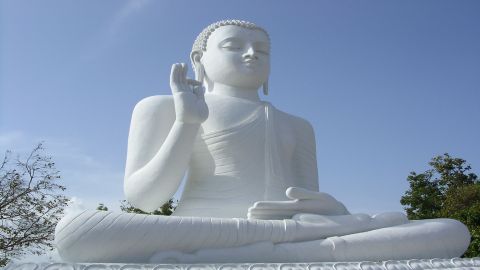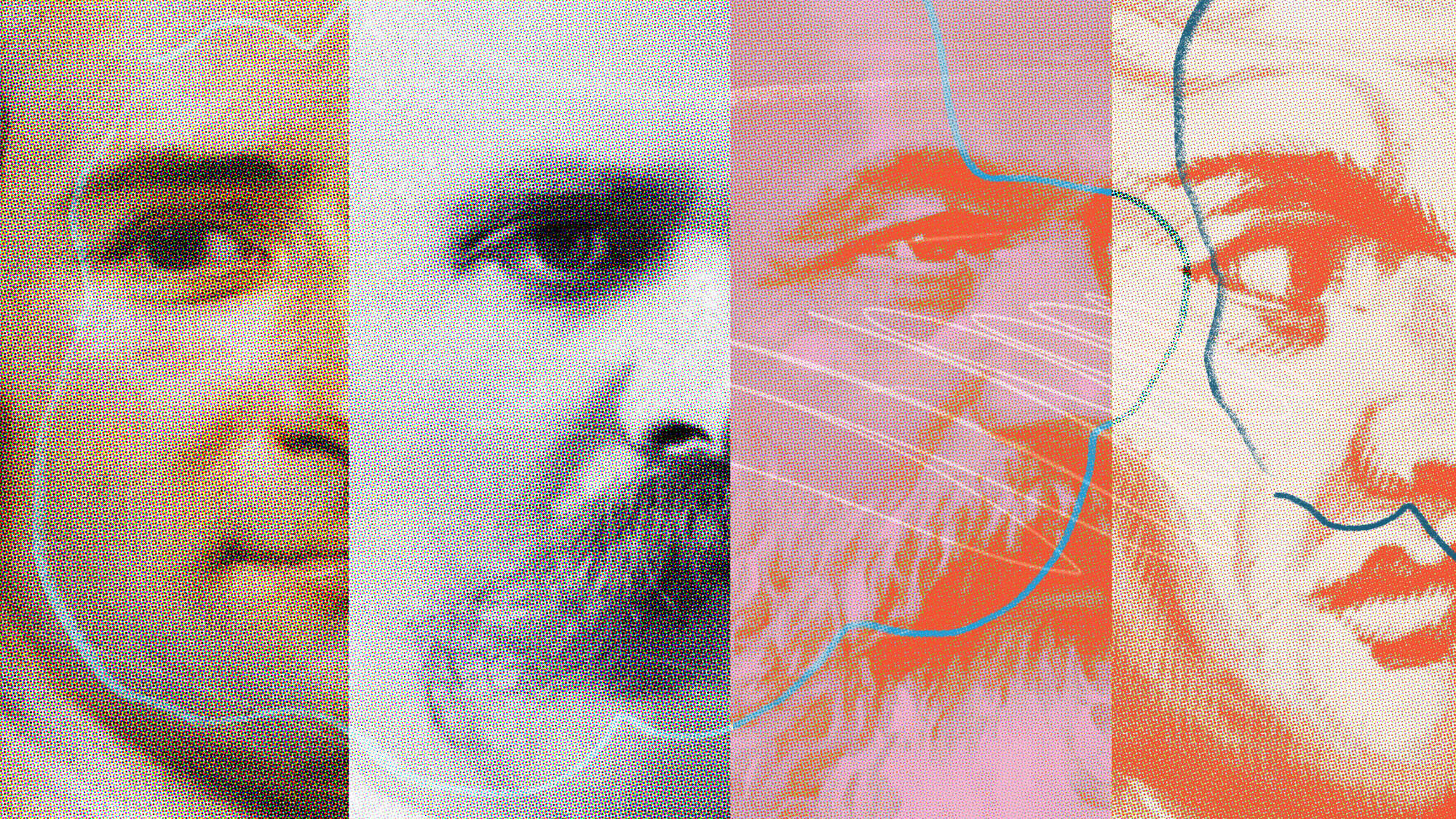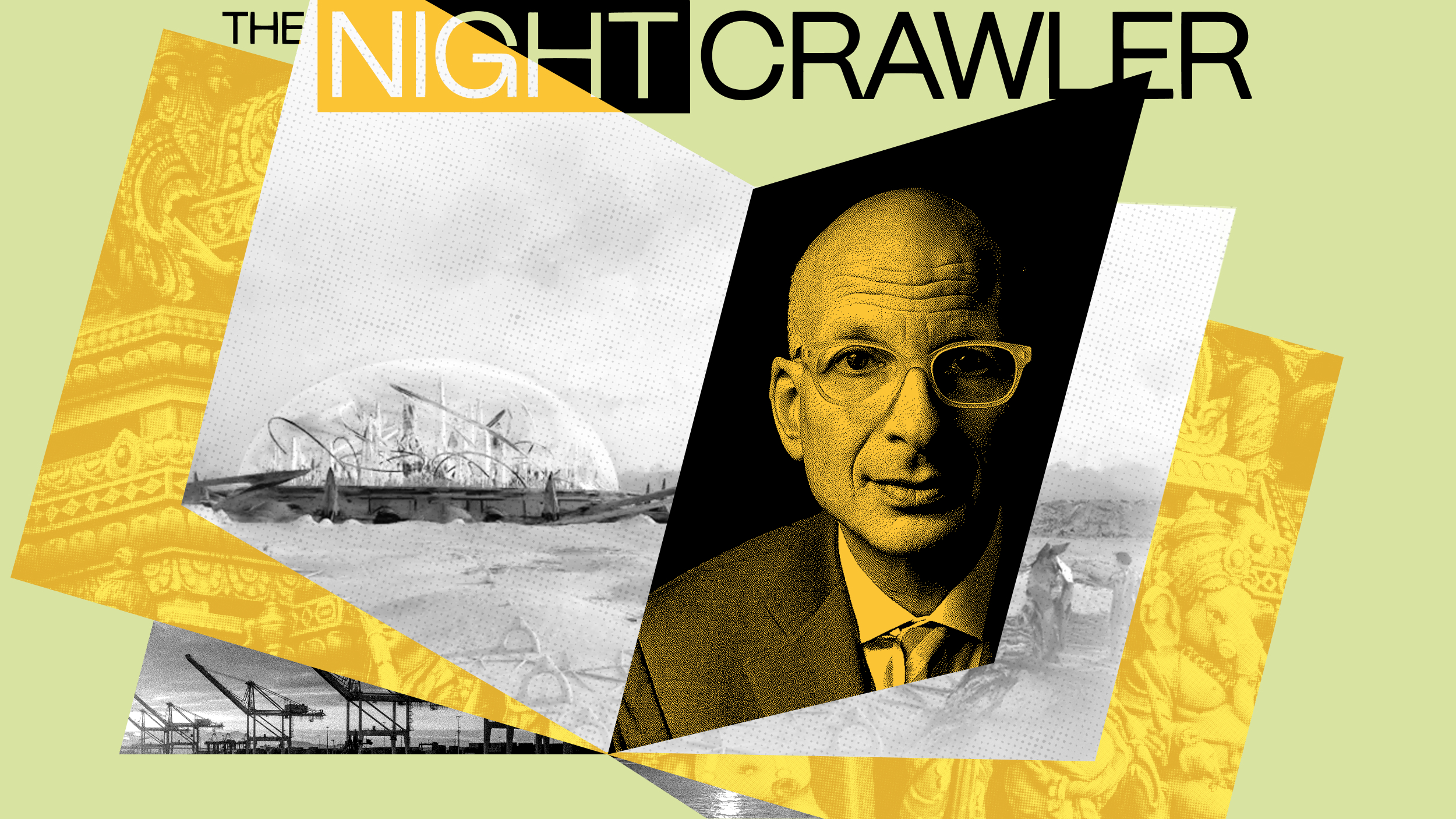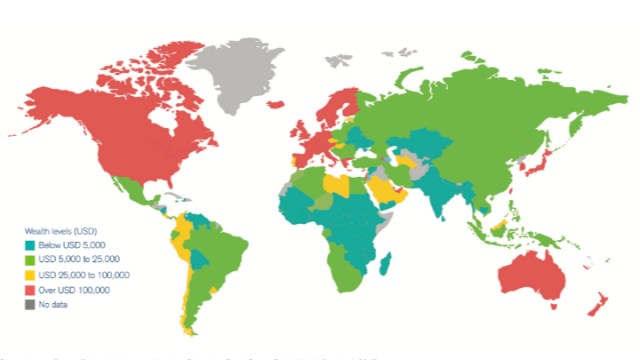10 Indian Thinkers and Why You Should Know Them.
India is a vast land, rich in history, beauty, and great ideas. Here, we want to introduce you to ten great minds in Indian thought. These ten thinkers span thousands of years, include several religions, and more than a few fields of expertise.

Sign up for the Smarter Faster newsletter
A weekly newsletter featuring the biggest ideas from the smartest people
India is a vast land, rich in history, beauty, and great ideas. Here, we want to introduce you to ten great minds in Indian thought. These ten thinkers span thousands of years, include several religions, and more than a few fields of expertise.

The flag of Jainism, each stripe represents a divinity as well as an ethical command. Source
The first teacher of Jainism to be generally recognized as a historical individual, as he is mentioned not only in Jainist texts but in Buddhist works as well. Parshvanatha was a monk who taught for 70 years, and had a wide group of followers. His followers have four restraints: non-violence, non-theft, non-possession, and non-lying, as opposed to the five ethical commands found in other strains of Jainism. He also supported the idea that monks could wear clothes, in opposition to other schools which advocated strict ascetism. A quick introduction to Jainism can be found here.
Souls render service to one another. – A proverb of Jainism.

Siddhartha Gautama, the founder of Buddhism, was born into north Indian nobility and was raised for a life of luxurious rulership and conquest. After discovering that suffering existed in the world outside his palace, he renounced his titles and became a monk; living a life of extreme ascetism in stark contrast to his former royal excess. After years of meditation, he achieved enlightenment and began to preach the four noble truths about the nature of suffering and the way to escape it; by means of the middle way between hedonistic excess and severe asceticism. More information on Buddhism can be found here.
Righteousness, when well-practiced, brings happiness. Truth is the sweetest of flavours. They say the life of one living by wisdom is the best.

The Maurya Empire, which Chanakya helped to establish, at its territorial height.
A Philosopher and statesman, Chanakya wrote the Arthashastra, an ancient text on political economy which has been compared favorably to the work of Machiavelli; as it focuses on keeping a ruler in power by means of wise rule and empowerment of the poor and not merely wicked statecraft. As an adviser to the emperor ChandraguptaMaurya, he was one of the chief architects of the MauryaEmpire, which would come to dominate the subcontinent for 150 years and would be led by the great Ashoka at its apex.
“If a king is energetic, his subjects will be equally energetic. If he is reckless, they will not only be reckless likewise, but also eat into his works. Besides, a reckless king will easily fall into the hands of his enemies. Hence the king shall ever be wakeful.”

A theologian who unified several fields of thought in Advaita Vedanta Hinduism, whose ideas on the soul and enlightenment continue to be influential. He wrote several notable commentaries on Hindu holy texts, including the ten principal Upanishads and the Bhagavad Gita. His theology often focused on the issue of how Moshka could be achieved in life, and he argued that liberation was possible for a self-realized person. He toured India extensively during his short life, and debated many other philosophers in his travels. An introduction to Hinduism can be found here.
“Knowledge of the Self is the one direct means for liberation.”

The founder of Sikhism who is revered as “The First Guru” of the faith. Born near what is now Lahore, Pakistan in 1469; he preached meditation on the one god, the unity of mankind, service to others, honest conduct, and living a simple life. His teachings were recorded at the time, and collected by other gurus to form almost one thousand of the hymns in the Sikh holy book, the Guru Granth Sahib. For those who would like an introduction to Sikhism, a video introduction is available here.
“Make compassion the cotton, contentment the thread, modesty the knot and truth the twist.”

The first non-European to win the Nobel Prize in Literature, and only the second person outside of Europe to win any such prize. Tagore was a noted poet, painter, musician and political theorist. He was the founder of Visva-Bharati University. He traveled extensively, and interacted with other great minds such as Albert Einstein, H.G. Wells, and George Bernard Shaw. An early supporter of Indian Independence, he often worked with Gandhi and once prevented him from fasting to death by resolving a major dispute on the voting rights of untouchables.
“Every person is worthy of an infinite wealth of love – the beauty of his soul knows no limit”

Mohandas K. Gandhi is known to the world as the saint of non-violent resistance and the father of Indian independence. He also laid out a comprehensive worldview in that offered an alternative to Western Civilization. Gandhian Economics calls for a change in focus from profit and material goods to spiritual development and self-sufficiency. His lifestyle of simple, communal living demonstrated a viable alternative to the westernization of Indian life which continues to this day.
He desired that a single state be created out of the British Raj, and was disappointed to see the division of India and Pakistan. He was assassinated by a Hindu Nationalist who opposed his accommodating stances towards the Muslim minority.
“It would be a good idea”.His alleged reply when asked for his opinion on Western Civilization.

Prime Minister Nehru meets with U.S. President Eisenhower.
An associate of Gandhi during the independence movement, president of the Congress Party in the late 1920’s, and the first Prime Minister of Independent India. He worked to centralize and modernize the Indian government and economy. A “scientific humanist” he worked to secularize India despite consistent opposition, enshrining the ideal of a “scientific temper” in the Indian Constitution. Internationally, he co-founded the non-aligned movement, which remains active today. He was the father of Indira Gandhi who also became India’s Prime Minister.
“Democracy and Socialism are means to an end, not ends in themselves.”

A graph demonstrating the Chandrasekhar limit, for which he won the Nobel Prize. You can learn more about the science here.
Indian born astronomer and physicist who discovered the maximum mass of a stable white dwarf, now known as the Chandrasekhar limit, for which he won the 1983 Nobel Prize in Physics. His ideas were initially ridiculed; as it implied that too massive a star might collapse into a black hole an idea many astronomers objected to in the 1930’s. He also worked extensively in the field of stellar evolution, was invited to join the Manhattan Project, and studied black holes and gravitational waves.
“It is, indeed an incredible fact that what the human mind, at its deepest and most profound, perceives as beautiful finds its realization in external nature.… What is intelligible is also beautiful.”

Considered one of the best sitarists and Indian composers of the 20th century, he was largely responsible for the popularization of Indian music, with its unique scales and half tones, with western audiences. He was the teacher and friend of George Harrison, who added Indian elements to the Beatles’ music as a result of that friendship. Shankar performed at many of the great music festivals of the 1960’s and 70’s, including Woodstock and The Concert for Bangladesh. He later found time to serve as a nominated member of the upper house of the Indian Parliament in honor of his artistic achievements. He was the father of noted musicians Norah Jones and Anoushka Shankar. Examples of his playing can be found here.
“The music to us is religion. The quickest way to reach godliness is through music.”
Sign up for the Smarter Faster newsletter
A weekly newsletter featuring the biggest ideas from the smartest people





